Test Bank Family Health Care Nursing Theory 4th Edition Kaakinen
$38.00
Test Bank Family Health Care Nursing Theory 4th Edition Kaakinen
- Description
- Reviews (0)
Description
You will receive this product immediate after placing the order
We do not log any information. Your order is completely anonymous. Gain triumph over uncertainty with this one simple purchase. Is it really possible to memorize thousands of pages of words? The core content is what is most important and what you need to know for your school and for your career. You have stumbled into the right place at the right time. Our authentic nursing test banks are marked down to an extremely low sale price for a limited time. This file is the strategy you need to help you become a professional and advance in your nursing career. Are you tired of studying day and night, learning countless information except the content you need to know for your exam? Asking this question, requires you to be able to hear the answer. This is truly nursing time secrets, we have helped countless nursing students. Get your nursing test bank for Test Bank Family Health Care Nursing Theory 4th Edition Kaakinen
Think about all the money you have invested in your school. Think about all the time you have to invest in your school while placing your life on hold. Our clients obtain time freedom. We want you to hunt down all your excuses and kill them one at a time.
Success in nursing school is truly a journey. Spend less time learning worthless information and more time memorizing what you need to know. Our nursing test banks for sale are proven to generate results, regardless of your education level or any previous failures you may have experienced. Add this product to your cart and checkout to download this Test Bank Family Health Care Nursing Theory 4th Edition Kaakinen.
*** HERE IS A SAMPLE SMALL FOR YOU TO SEE ***
1. Which of the following recent trends has influenced both the client’s treatment needs and the
system of care delivery in family mental health nursing?
a. Freudian psychoanalytic movement, deinstitutionalization
b. downward turn in the economic market, consumer advocacy
c. health care reform, shortened length of hospital stay, more manageable
medication protocols
d. Freudian psychoanalytic movement
2. Family mental health nurses who are using systems theory to guide their practice would assess
which of the following areas in families?
a. differentiation of self, anxiety, and triangulation
b. power, subsystems, and boundaries
c. multigenerational trust, multigenerational loyalty, and other multigenerational family
processes
d. disconfirmation, disqualification, and double-bind messages
3. Nancy is an advanced practice nurse practicing family nursing in a community mental health
center. She is developing a health-promotion program for the community. Health
promotion seeks to:
a. increase positive coping abilities and counteract harmful conditions that may
produce disability.
b. provide early diagnosis and treatment, and prompt referral as necessary.
c. assist the client and the family to resume the highest level of productivity in all aspects
of daily living.
d. assist the client and the family to cope with residual disability that warrants continued
assistance.
4. Family mental health services ideally occur in which of the following settings?
a. clinic
b. home
c. school
d. all of the above
5. A growing trend in the care of individuals with mental illness is:
a. the use of family members as caregivers.
b. the use of wrap-around services in all communities.
c. the use of multigenerational assessments in all settings.
d. the decrease in the use of psychotropic medications in the treatment of mental illness.
6. After a potentially lethal suicide attempt by drinking rat poison, 33-year-old Maria was
admitted to the intensive care unit for stabilization of her physical condition. The nurses
sought a consultation from the mental health consultation liaison nurse. What is the role of
the mental health consultation liaison nurse in this intensive care unit? Answer: Help the
client and the family begin to understand the crisis that has just occurred and options
for family treatment.
7. John has experienced the debilitating effects of schizophrenia for the past 10 years. After his
most recent discharge from the hospital, he was admitted to a psychoeducational program.
What are the elements of a strong psychoeducational program?
Answer: providing information about the availability of specific community services;
providing detailed information about the illness, treatment plans, and medications; and
providing home visits by a mental health nurse specialist.
8. Melissa is a 19-year-old woman who has recently received a diagnosis of bipolar disorder. She
was admitted to an inpatient treatment setting that emphasizes family-focused treatment.
Describe what family-focused treatment could include.
Answer: holding regularly scheduled conferences that include the family in setting
treatment goals; providing support and understanding to the family; including family
therapy as part of the treatment program, education, mobilization of resources, and so
on
Student Learning Activities
1. Give students a list of songs (or have students choose a current or favorite song) that address
mental illness. This could be a classroom discussion or a short paper to discuss how the artist
portrays mental illness and if that portrayal matches the current mainstream culture.
Some examples are:
“Sad Lisa” by Cat Stevens (schizophrenia)
“The Great Pretenders” by The Platters (depression)
“Fire and Rain” by James Taylor (mental illness, loss, and suicide)
“Nowhere Man” by The Beatles (mental illness in general)
2. Assign students to read a fictional or nonfiction book on mental illness, and write a short paper
on how the illness affected family members and critical points when nurses did or could have
made a positive impact on the family.
Some examples are:
Beautiful Boy by David Sheff (2009) (sequel, Tweak, written by his son, Nick Sheff
[2009])
Ordinary People by Judith Guest (1993)
Sybil by Flora Rheta Schreiber (1989)
I Never Promised You a Rose Colored Garden by Joanne Greenberg (1989)
She’s Come Undone by Wally Lamb (1998)
I Know This Much to Be True by Wally Lamb (1999)
3. Show parts of films in class, and have students discuss the mental illnesses and the impact on a
specific aspect of family dynamics, for example, employment, personal relationships, and
career plans. Some examples of popular movies are:
Ordinary People (1980)
Sybil (1977)
The Heart Is a Lonely Hunter (1993)
Good Will Hunting (1997)
Case Study
Johnson Family Case Study
The following case study of the Johnson family demonstrates the assessment, diagnosis, outcome
identification, planning, implementation, and evaluation for care of a family with a member who
has a mental illness.
SETTING: Inpatient acute care hospital, cardiac intensive care unit (ICU)
NURSING GOAL: Work with the family to assist them in planning for discharge to a less
intensive care facility that is planned to occur in the next 3 days.
FAMILY MEMBERS:
• Steve: father, 55 years old, small businessman
• Mary: mother, 49 years old, stay-at-home mother
• Debbie: stepmother, 54 years old, schoolteacher
• Harold: stepfather, 60 years old, successful building contractor
• Tony: identified patient, 23 years old, oldest child, son, unemployed, sleeping on couches
of friends
• Susie: younger daughter, Tony’s sister, 14 years old, eighth grader, overachiever and
“perfect” child
• Bobby: Tony’s half-brother, mother’s son, 12 years old
• Rachael: stepmother’s daughter from previous marriage, 30 years old
Johnson Family Story
Tony Johnson is a 23-year-old man who was admitted to the hospital cardiac ICU through the
emergency department in acute cardiac distress from an accidental methamphetamine overdose.
He arrived at the emergency department by ambulance from his drug-free friend Doug’s single-
room occupancy hotel room. Tony is currently homeless. He had been sleeping on his drug
dealer’s couch for a week until he was arrested for assault. Since his arrest a few days ago, he
has been sleeping on Doug’s floor.
Tony has been in and out of substance abuse treatment programs since he was 17 years
old. He was diagnosed with bipolar disorder at the first treatment program he attended. His father
and stepmother convinced him to enter that program just before his 18th birthday and paid for
the expensive 3-month program. As with all of the programs he has attended, he left soon after
admission to the program.
During a previous emergency room admission, Tony got angry at his family, tore off his
electrocardiogram leads and oxygen mask, and left the hospital against medical advice. During
the present hospitalization, Tony called his father from the emergency department to ask him to
come and help get him admitted to another treatment facility. Tony has agreed to see his sister
and stepmother, but not his stepfather or stepsiblings. He also refuses to see his mother because
he says she “is the cause of all my problems.” His mother and father separated, and later
divorced, when Tony was 10 years old and his younger sister was about 1 year old. He and his
mother fought constantly when he was a child, and she was overprotective of him. Tony was an
obedient child who then began using alcohol and drugs, and stealing from family members
beginning in his early teens.
Tony’s father has maintained Tony on his small business’s health insurance policy. Tony
is eligible for short-term residential treatment if he can prove to the director of the program that
he intends to cooperate this time. His father is again willing to pay for longer term drug and
psychiatric treatment if Tony proves that he is intent on cooperating with his treatment plan.
Tony stopped taking his mood-stabilizing medications approximately 2 weeks ago, when
his most recent binge use of methamphetamine started. Currently, the doctors are reluctant to
prescribe his mood-stabilizing medications while the methamphetamine is still affecting his
major systems.
Be the first to review “Test Bank Family Health Care Nursing Theory 4th Edition Kaakinen”
You must be logged in to post a review.

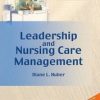


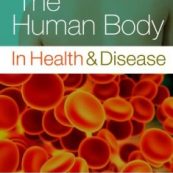
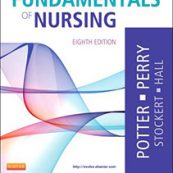
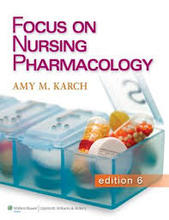
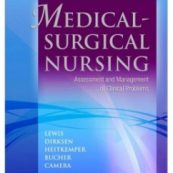
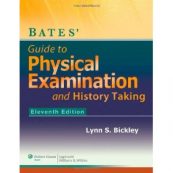
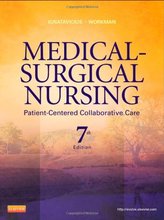

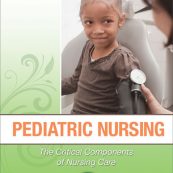
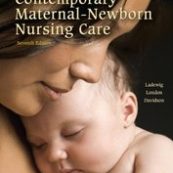
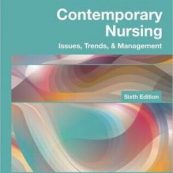
Reviews
There are no reviews yet.